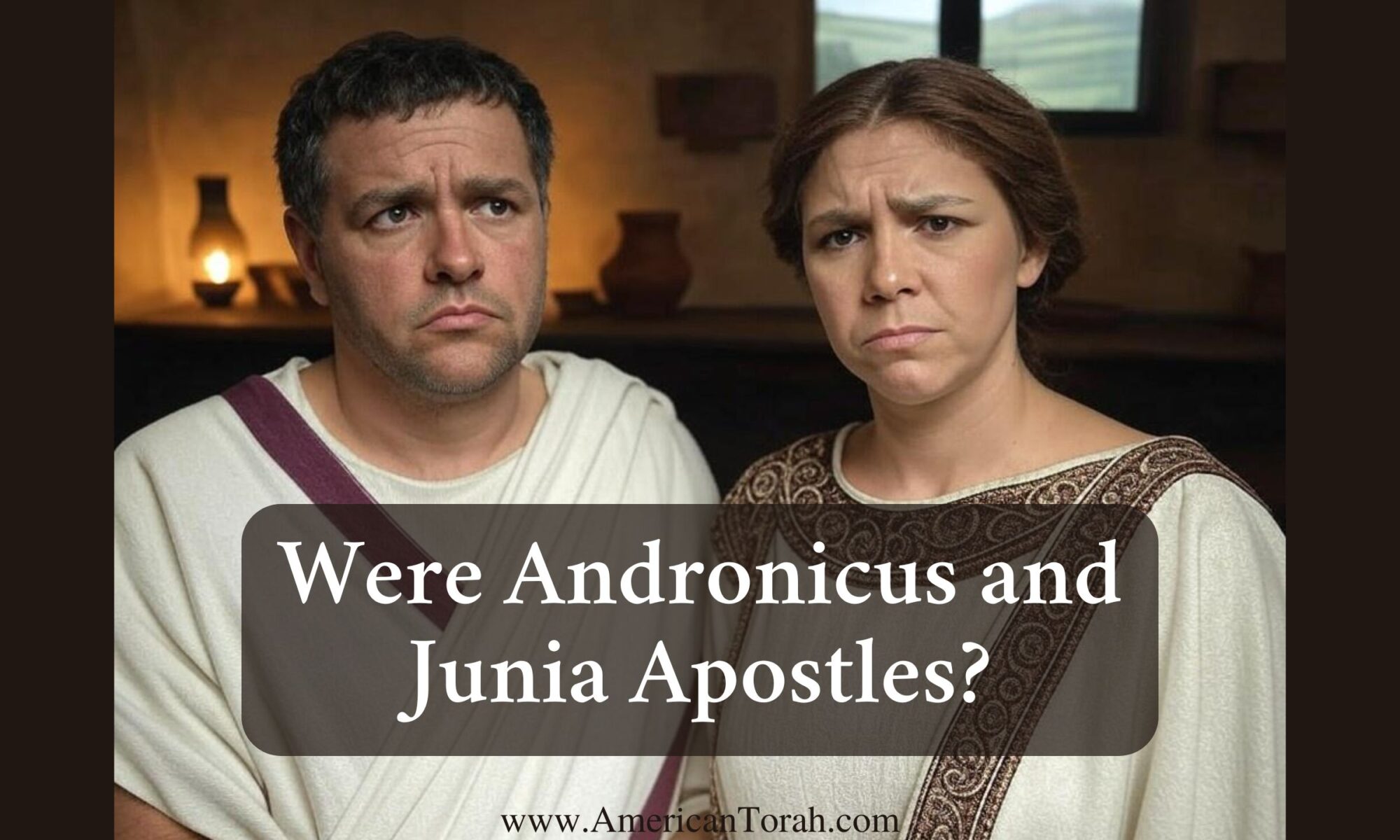It’s a good thing to be a teacher of the Word, but not something to be taken lightly. In James 3:1, the brother of Yeshua (aka Jesus) wrote “Let not many become teachers, my brethren, knowing that as such we will incur a stricter judgment.” (NASB95)
To some extent, God wants us all to be teachers. Paul wrote in Romans 15:14 that we are to encourage and admonish one another and in 1 Corinthians 14:26 that the members of a congregation should be encouraged to bring psalms, teachings, and prophecies to share. In Deuteronomy 6:7, Moses told us to teach God’s Law to our children.
The difference between teaching and being a teacher may be subtle, but I don’t think it’s difficult to grasp. We all clean, but we are not all janitors. We all sing, but we are not all singers. I sometimes write computer code in the course of my job, but I’m not a computer programmer.
On one hand, there are people who teach their children, instruct their employees, and share their understanding of Scripture with their peers. On the other hand, there are people who have been gifted by God with the ability to understand a complex topic or a difficult skill and explain it to others.
Consider Bezalel and Oholiab in Exodus 35:30-35, which reads in part, “God has filled Bezalel with his Spirit, wisdom, understanding, and knowledge of all kinds of craftsmanship… He also gave him a heart to teach, along with Oholiab, the son of Ahisamach, of the tribe of Dan.” These two men had a special gift for shaping metal, stone, and wood into beautiful objects that glorified God, and they had a desire and the temperament to teach that knowledge to others.
It’s a good thing to want to be a Bible teacher, and I would encourage anyone to study and tell others what they find so long as they are able to do so with gentleness and humility. However, not everyone is equipped for the role of teacher, and this is just as true in spiritual matters as in any other–perhaps even more true.
A spiritual teacher should align with the same criteria that Paul gave in 1 Timothy 3:1-7 and Titus 1:5-9 for elders in the congregations they were organizing:
- He’s humble and self-controlled
- His household is in order
- He’s not a new convert or untaught in the Scriptures
- He’s not greedy or a womanizer
- He has a good reputation
- He’s not a partier or a brawler
I don’t think Paul meant that as a mandatory checklist so much as a set of guidelines, but even so, it’s a high bar. Nor was James trying to scare anyone away from becoming a teacher. Rather he was warning us not to do so lightly. It’s a heavy responsibility.
In v2, James wrote, “If anyone doesn’t stumble in what he says, he is a perfect man, able to control the rest of his body as well.”
Everyone makes mistakes. Everyone is wrong at times, and teachers aren’t exempted. No spiritual teacher on earth knows everything, and so they all inevitably teach some amount of error. However, the consequences of a mistake can be greater for a teacher than for a student. This is why James wrote, “[teachers] will incur a stricter judgment.”
Consider what Yeshua said in Luke 12:48: “From everyone who has been given much, much will be required; and to whom is entrusted much, of him even more will be asked.” His point was that if you carry out a divinely delegated responsibility with diligence and faithfulness, there is reward, but there is also a greater spiritual cost if you fail.
It’s true in this world and the world to come, but you can look to the many fallen preachers and evangelists for an example in the here and now. If your auto mechanic tells you to use the wrong motor oil, it could cost him some business and you thousands of dollars. However, if your pastor tells you that English translation X is the infallible Word of God for the English speaking world, will your faith be shaken when you later discover that translation X has a few errors and questionable word choices? If yours won’t, I guarantee you that someone else’s will be.
If a preacher tells you that God wants you to do one thing when he really wants you to do the opposite, then he jeopardizes the spiritual lives of everyone in his congregation. He tarnishes God’s name and gives God-haters leverage against those with weak faith: “Your pastor said this, but the Bible clearly says that. He’s a hypocrite!”
Yeshua’s warning was mild compared to what God said through the prophet in Ezekiel 33:6-9. To paraphrase, “If the watchman sees the sword coming and does not blow the trumpet, and the sword takes a single person from among the people, the watchman will pay for that man’s blood. If you don’t warn the wicked to repent and he dies in his sin, I will make you pay for his blood. If you do warn him and he repents, you will not only have saved that man’s life, but you will have saved your own as well.”
Like James, I don’t say all of this to scare anyone away from aspiring to be a teacher. I say it to scare you away from taking this calling lightly. It is a good thing to immerse yourself in the Scriptures, to help others to understand and obey them, and to enhance their relationship with God through that understanding and obedience.
Not everyone should seek to be a teacher of God’s people. In fact, most people should not. But if God is calling you, you can’t ignore him. If you feel the fire that Jeremiah described as burning in his bones if he kept it to himself, you must step forward, and you must treat it seriously.
Be a student of the word first and be diligent. You shouldn’t start teaching even the basics of the faith until you have begun to grasp the deeper, more difficult aspects. If you don’t know where to start, start here: Common Sense Bible Study Essentials.
Submit yourself to the elders of your local congregation. If you don’t have elders or a congregation, go get them. Right now. There are no lone wolves in God’s Kingdom. Listen to those who have proved themselves to be faithful men of God and follow their example. Seek counsel and discipleship as Paul went to James and Peter after his conversion, and be obedient to the Word and the Spirit.
Remember that no one except Yeshua ever gets everything right. You can derive a comforting lesson from James’ words, “If anyone does not stumble in what he says, he is a perfect man…”. Nobody is perfect. I think he was talking about maturity rather than perfection, but it’s also possible that this was tongue-in-cheek, as if to say “If you can do this, you can do anything.” You will teach some error. Fix it when you learn better, and then move on.
You should be certain that you are called to teach. I can’t tell you exactly how you will know. Maybe you’ll feel that fire in your heart that won’t let you be silent, burning into your bones. Maybe you’ll be selected and anointed by the elders of your congregation. If you’re not sure, start with the exercises in this article (https://americantorah.com/2018/11/15/six-exercises-to-find-your-calling/) and then go talk to your elders. If you start teaching and someday realize that it isn’t your true calling, be humble enough to admit it and step aside for someone else who is ready.
Finally, trust God’s Spirit to guide and equip you for your task. Just as Bezalel and Oholiab were given skill and a heart to teach, God will provide what you need if he’s called you. Don’t think it will be easy. That fire in your bones won’t always come out in ways that people can understand at first. It takes hard work to refine your message, to learn how to speak to people, to break down the complex ideas that are banging around in your heart so that they come out of your mouth and your keyboard in useful form. Remember that it’s not about earning a name or an income, but about pointing people through Yeshua to the Father.
Listen in on Common Sense Bible Study’s conversation on James 3:1-12.









